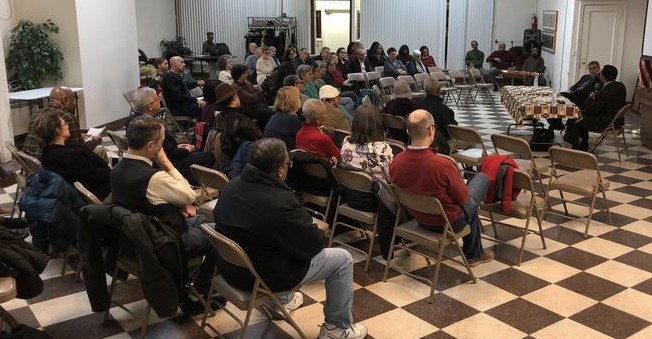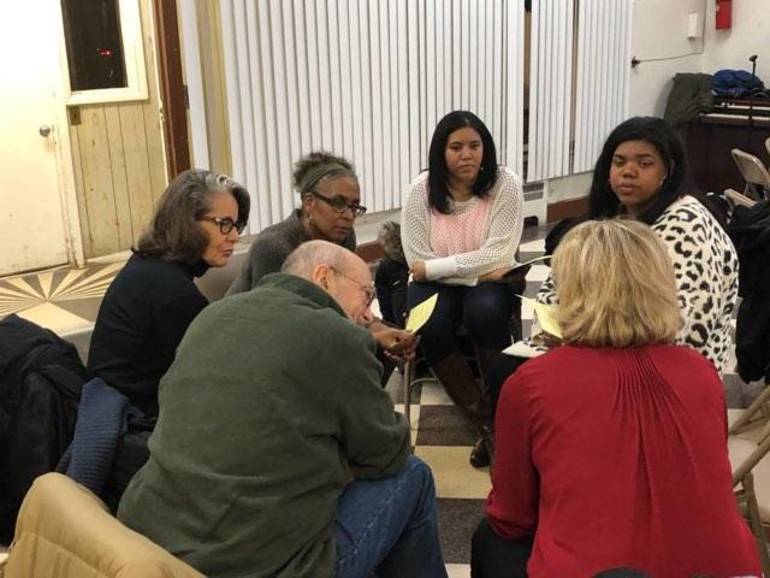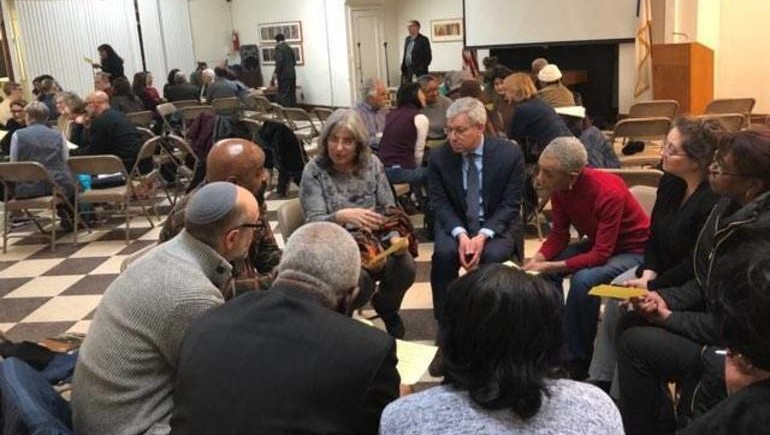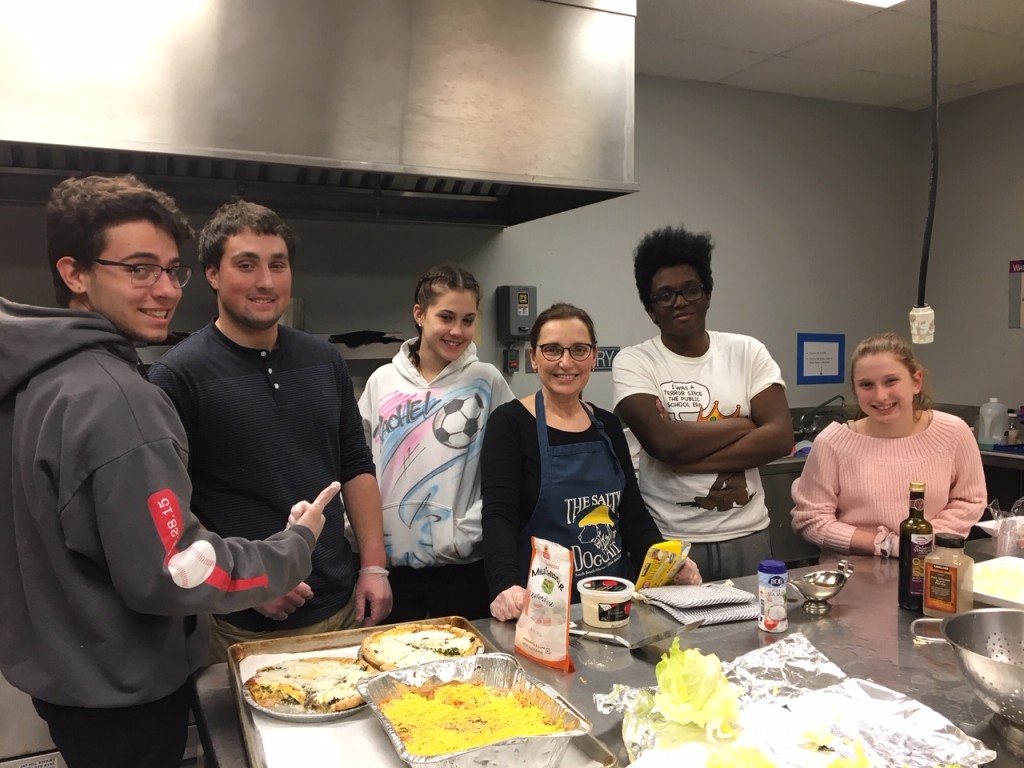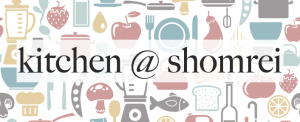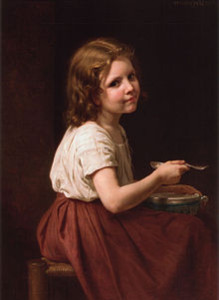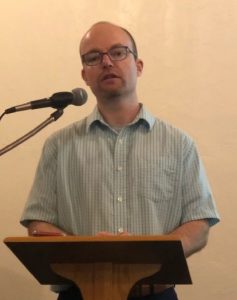 Shomrei members attended a session about immigration led by Reverand David Shaw of the Union Congregational Church on March 4. The session is part of the Interfaith “Break the Hate ” series developed by Union Baptist Church. Several of the people who attended share their recollections and thoughts about the evening:
Shomrei members attended a session about immigration led by Reverand David Shaw of the Union Congregational Church on March 4. The session is part of the Interfaith “Break the Hate ” series developed by Union Baptist Church. Several of the people who attended share their recollections and thoughts about the evening:
Aileen Grossberg
Reverend David Shaw presented a concise and illuminating history of immigration and immigration restrictions. We were all reminded that, despite what Emma Lazarus’s poem on the base of the Statue of Liberty might say, the U.S. policy on immigration has been restrictive for much of our history. To be reminded of this was very disillusioning.
I also thought sharing with a small group was effective. The activity broke up the intensity of listening, made the history become real, and helped us examine our own relationship to the idea of “American.”
Linda Ariel
I was not sure what I expected from last night’s program, Impact of White Supremacy on Immigration. Each of the two previous programs seemed to be more of a reflection of the presenter’s personality, perspective, and background. As such, I am becoming more knowledgeable about the different faith communities in Montclair, the people, their history, and their spiritual perspective.
Reverend David Shaw was an engaging speaker who was comfortable in sharing his experience in coming to the United States as a ‘migrant’, the verbiage he most often used to discuss the people who come to live in the United States of America. He interspersed didactic information with allowing us to discuss our own experiences in smaller groups. This allowed us to form ties with congregants of different religious institutions throughout greater Montclair, which for me broke down the anonymity of the people attending the presentation. Indeed, in attending the three meetings of this series and being engaged in an interfaith women’s group on our town, I am beginning to recognize people who used to be strangers to me and feeling more and more connected to other participants who share common values.
History is not my strong suit, so Reverend Shaw’s review of the history of migration in the US and the evolution of our country’s attitudes to newcomers here was very informative and enhanced the discussions in the small groups.
I continue to learn not only from the people who present each evening, but from listening to the others attending the series. It is important to listen closely to our neighbors and move from being strangers, to acquaintances, and hopefully in the long term to being friends.
Sarita Eisenberg
Several things struck me during the evening. I’ll highlight one – the discussion about who is a “real American”.
Reverend Shaw is an immigrant. He pointed out, however, that his is not the prototypical immigrant experience as he came from England. No one has ever questioned his right to be here and, now that he is a citizen, no one suggests that he is not a “real American”. This was also the experience an older gentlemen in my breakout group who came to the U.S. from Scotland about 25 years ago in response to a job offer. No one has ever suggested that he was taking a job away from a “real American”. Although he speaks with a noticeable Scottish accent, everyone he meets assumes that he is a U.S. citizen (which he is not) – a “real American”. I couldn’t help contrasting this with my family’s immigration experience as Jews fleeing from Eastern Europe or with how refugees and asylum seekers are being treated.
Click here for information about additional Break the Hate sessions
Photographs: Courtesy of Union Baptist Church

